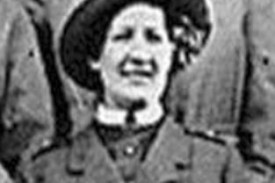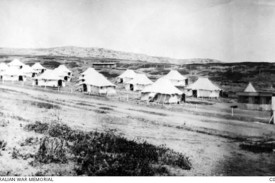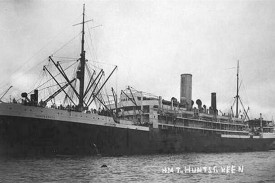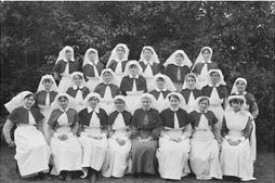General News
11 October, 2025
Thora Augusta McLennan
Thora Augusta McLennan was born in Dimboola in 1883.
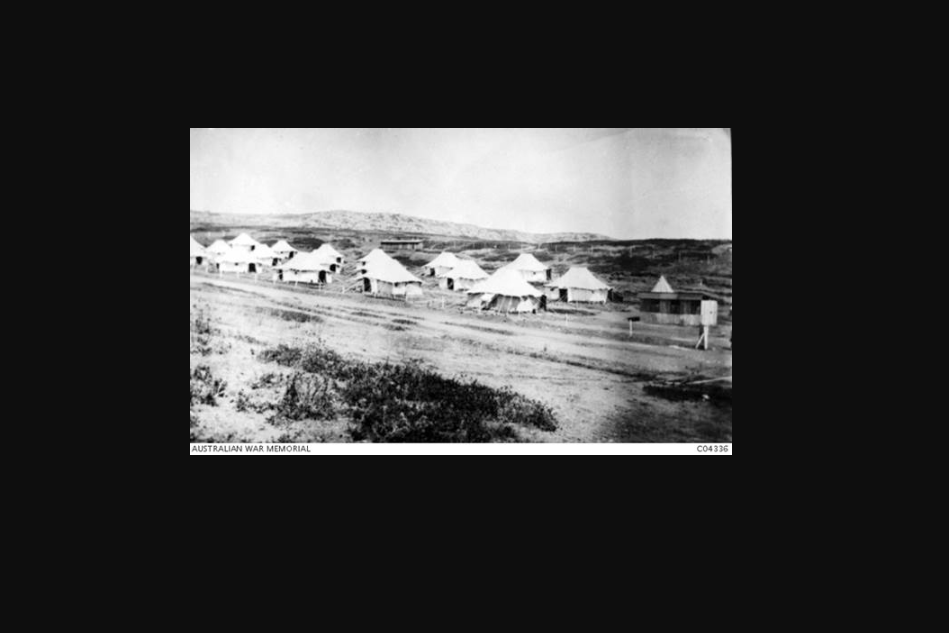
Thora was the daughter of Donald Ferguson McLennan and Sophie (née Meinke) or perhaps Margaret (née Rees), as records contain conflicting information on this.
There is no record of her exact birthdate but Thora was known to have three siblings listed as having been born to George Ross and Margaret McLennan in Dimboola.
In a further mystery regarding her background, in the New South Wales deaths register her father is listed as Donald Ferguson McLennan.
Regardless, she completed three years of training at the Nhill hospital and was a fully trained nurse when she enlisted for World War I at 32 years of age.
Thora enlisted May 29 1917 in Melbourne as a staff nurse.
Her address was care of Mrs Kenneth Jacobi of 91 Pender Street, Northcote.
Her next of kin was named as her mother, Margaret McLennan.
She stated her father, George Ross McLennan, was deceased.
Thora’s unit was Nurses from July 1915 until November 1919.
Thora left Australia aboard Mooltan from Melbourne on either June 12 or 26 1917 to sail to Suez, Egypt, the port closest to Cairo.
Another record had her unit departing Melbourne on board RMS Somali on June 30 1917.
She disembarked in Suez and subsequently sailed aboard HT Huntsgreen for service in Salonika and Alexandria on August 13 1917.
Here Thora served at the 60, 66 and 42 Australian general hospitals.
In late May or June 1918 Thora went to hospital with malaria.
She was classified unfit for service and repatriated back to Australia aboard Kanowana on September 1 1918 (another record gives this date as July 22 1918).
There, Thora was given three months off duty and not allowed even light duties due to her condition.
Thora was discharged on March 23 1919.
She married Martin John Millson on December 3 1920 in Ascot Vale.
The British War Medal and Victory Medal to which she was entitled were returned unclaimed to base depot in October 1923.
Thora died in 1963 in Rockdale, a southern suburb of Sydney.
Thora’s brother Arthur had also enlisted, in Queensland, and listed “Margaret” in Pender Street, Northcote, as his next of kin.
He served as 4190 Private in 35 Infantry and returned to Australia in March 1918 after being diagnosed with a heart condition.
Local report
The Dimboola Banner and Wimmera Advertiser of June 1 1917 reported on Thora’s posting, under the headline ‘Local Girl Goes on Active Service’.
Nurse Thora McLennan, sister of Mrs Linder of the cordial factory, Dimboola, sails next month for service aboard.
Miss McLennan had her name on the list of those willing to go and has been called up.
She was born in Dimboola and trained at Nhill Public Hospital under Dr Ryan.
She had her own private hospital in Cohuna (Natalia).
Thora sold the private hospital, having had it from August 1914 to December 1915.
Lately Thora had done private nursing.
Salonika, Greece
It would be a great shame to likewise omit the service of Australia’s nurses in Salonika, who also faced extreme difficulties with remarkable courage and professionalism.
Such hardships would eventually come to mark this theatre of war as one of the most difficult for the AANS.
Salonika (also known as Salonica, Thessaloniki or Thessalonica) in Greece was a sideshow to the Western Front but was nevertheless an important campaign to regain control of the Balkans and prevent enemy forces gaining control of areas leading to the Suez Canal and the Middle East.
It wasn’t until September 1918 that the stalemate was broken, when the Bulgarian army, which was an ally of Germany, was forced to capitulate.
Salonika was a major base in this operation.
Following the invasion of Serbia by Austro German forces and the Bulgarian Army in October 1915, Anglo French forces were dispatched north from the Greek port of Salonika to assist the beleaguered Serbian army.
During World War I AANS nurses served in general hospitals in Salonika.
They worked in tent hospitals, caring for patients with malaria, dysentery and black-water fever.
A number of British and Canadian hospitals were established in Salonika in 1916.
Although there were no Australian soldiers fighting on this front, Australian nurses were sent to relieve the British, French and Canadian nurses and to provide nursing care to British soldiers and Bulgarian prisoners of war.
As Australian nurses were present in a theatre of war where they could not nurse the Australian soldiers they so desired to, they were inherently disappointed.
Nursing ‘our boys’ was a major motivation for overseas service.
Nurses wore mosquito-proof clothing, including rubber boots, thick veils and large gloves.
The nurses faced many hardships, including the difficulty of moving around in their protective clothing.
Some nurses returned home from Salonika with nervous debility and required convalescence.
With thanks: Sally Bertram, RSL Military History Library. Contact Sally at sj.bertram@hotmail.com or call 0409 351 940.
